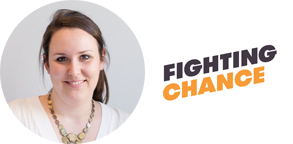
Our panelists shared their 'out of the box' examples of how to use your NDIS funding to create multiple and meaningful employment, social and community pathways after school. The webinar covered these areas:
1) Understanding and smashing the key barriers
- Where to go for information about after school options?
- Lack of meaningful employment opportunities (esp in rural/remote areas)
Laura gives examples of using mainstream services and your ndis funding to find new innovative options. Break out of the old school thought of having to use 'disability services' as a post school solution.
- How to start your own business
What motivates you, what are you passionate about and how can you use NDIS fudning to help you do this.
- Lifting society's expectations of what people can achieve.
2) What innovative options can you create using our NDIS funding?
- What goals can the NDIS fund after school and can I have more than one goal?
Nicole and Laura walk you through how to
- Real world examples of more innovative ways to use my NDIS funding?
Resources to accompany the webinar
Suggested resources from MyCareSpace:
- Mind Your Business (by InCharge)
- Learn how to start your own business - StartUp Program in Maitland, NSW
- Bus Stop Films Taster Workshop
- Ruckus
- Studio Artes
Access Online Care Worker Platforms where you can find a partner in crime and or register your favourite care worker on these platforms so that you can employ them:
NDCO
The Australian Government’s National Disability Coordination Officer (NDCO) Program works to overcome barriers to successfully transitioning young people living with a disability tertiary education and subsequent employment, through a national network of regionally based NDCOs. Find our more below:
Other Resources
Suggested Resources from Laura O'Reilly (Fighting Chance)
Suggestions from our Members:
- Flinders University - Up the Hill Project
- Valued Lives: FB Page / Website
- Centre for Disability Studies
- Belong INC (Lifestart) is a new ILC funded program for 12 - 18 years in the IW, Eastern and St George /Sutherland regions. We are supporting access to community and belonging and inclusion. Exploring YP's goals with them for accessing mainstream activities. Contact Lifestart to find out more: 1800 953 390
- Plan and Grow - Employment Support
- Lifeful - Employment Support
- Nundah Cooperative
TELL US ABOUT A PROGRAM
Answers to Specific Questions
1. What is the difference between SLES and DES?
School Leaver Employment Support (SLES) is a new support offered through the NDIS to provide individualised support for up to 2 years after finishing year 12 to help you get ready for work and plan your pathway to employment.
Disability Employment Services (DES) is a free service that help people with disability find work and keep a job.
NOTE: You can use BOTH SLES and DES concurrently.
2. What NDIS goals can I use to get funding to help start a new business?
Check our this advice from Libby Ellis and the Mind My Business venture at InCharge.
3. I'm just wondering how to decide if you SLES it or DES it or ask for Finding and Keeping a Job for a participant who has been released from school, is now 17 yrs old and on a DSP?
Laura's answer:
What this family should do depends on the young person’s situation. If the young person is ready to head straight out to work and it is just a matter of finding a suitable role, it would be a good idea to approach a DES immediately.
If the young person could benefit from some training and preparation before heading into a role, then I would definitely be applying for SLES.
SLES is a 2-year, (generally) 3 day per week program which teaches the young person job skills and gets them ready. A typical exit from SLES can be leaving the program to join a DES, so if the family think the young person can benefit from that assistance (and particularly as he/she is still only 17) that might be a good pathway.
To be honest, I’d be applying for SLES anyway, as it is only available to school leavers (so this young person only has this chance to get it) and you can be doing a SLES program AND registered with a DES at the same time.
“Finding and keeping a job” funding is more generalised and usually we see people apply for FAKAJ after they have completed their 2 year SLES program.
More about Laura O'Reilly

LAURA O' REILLY was inspired by her younger brother Shane, and the very limited options he was faced with once he left school.
Laura went on to co-found Fighting Chance Australia (with her other brother, Jordan O'Reilly, CEO of Hire Up) in order to tackle these limited options, and to provide people with disability the opportunity and environment to meet their potential, and to participate in the economy and community after school and beyond.
NDIS THERAPY FINDER - FREE SERVICE
LET US FIND YOU A SKILLED SUPPORT WORKER